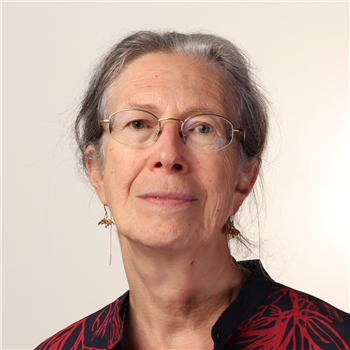Meet the ESC Gold Medallists: Professor Karin Sipido
31 Aug 2024
 ESC Gold Medallist
ESC Gold Medallist The outstanding contribution of Professor Karin Sipido (KU Leuven - Leuven, Belgium) to cardiovascular medicine comes from a combination of her seminal academic research into cellular mechanisms of heart failure (HF) and arrhythmias, her active support for interdisciplinary and cross-border collaboration in cardiovascular research, and her engagement in research policy.
What inspired you to specialise in cardiology and move into basic research?
Already during my medical studies, I was fascinated by science and scientific discovery. Fortunately, Dirk Brutsaert made it possible to combine my clinical training in internal medicine and cardiology with research in his lab. On completion, I realised that my passion lay in research, which prompted me to go to the USA for additional training at the University of Maryland and Johns Hopkins. On my return, I obtained a PhD in physiology with Edward Carmeliet at KU Leuven. These experiences anchored my main research focus, the electrophysiology and calcium handling of cardiac myocytes as mechanisms determining cardiac function. In 1995 I joined the division of Cardiology led by Frans Van de Werf and started the laboratory of Experimental Cardiology.
What do you consider to be your main career achievements to date?
Scientifically, a number of milestones defined the way forward. The first experiments we conducted on myocytes isolated from human hearts in end-stage HF set the lab on a track for continued use of human tissue as reference in translational research.1 This decision also prompted the move to large-animal models as more representative for humans and a step closer to translation of research findings.
Collaborations with a wider team – including cardiologists and cardiac surgeons, and the multidisciplinary team in cardiac imaging – opened the door to new studies investigating ischaemic heart disease and arrhythmias. In 2014, Llew Roderick joined Experimental Cardiology, bringing advanced molecular expertise to the group and establishing a new area of epigenetic studies on ageing and HF. Our collaborative studies recently highlighted the link between cellular heterogeneity in the local microenvironment of the infarct borderzone and a vulnerability to arrhythmias.2
Another milestone is our work on fibrosis in human HF. When we started fibrosis research in 2014, it did not attract much attention, but now it is a hot topic related to the epidemic of HF with preserved ejection fraction. The main theme of ongoing research is the role of interactions between fibrosis, fibroblasts and myocytes in arrhythmogenesis, using functional studies in living cardiac tissue slices. These innovative studies are in the expert hands of Eef Dries, who recently joined the faculty, while Llew Roderick now leads Experimental Cardiology following my recent progression to Emeritus Professor.
Within the ESC, establishing the Council of Basic Cardiovascular Sciences in 2004, together with Raffaele de Caterina and Andrew Newby, was a milestone for increased collaboration across fields and for stronger integration of basic science into cardiovascular medicine and ESC activities. The Council was also a place for closer ties with the journal Cardiovascular Research, of which I was Editor-in-Chief from 2013 to 2017.
Advocating for increased European research funding for cardiovascular projects, as a member of the ESC EU Affairs Committee, was the start of engagement with the European Commission (EC). I was founding board member for ESC and then President of the Biomed Alliance, an organisation that has become a major stakeholder for consultations and discussions about health and health research with the EC. Subsequently I led the Scientific Panel for Health within the EC from 2014 to 2020 and have since remained engaged in European advocacy for health.
What are your future plans?
Progression in cardiovascular research requires a healthy balance of demand-driven research, opportunity-driven discovery research and ‘blue-sky’ research. Critical to achieving this is embracing interdisciplinary international collaborations, with new models of communication, publication and funding, and of career paths. I am committed to remain engaged in support and advice for policy changes to help make these possible, with the ultimate goal of better research for better health.
“Have a vision of the career you want but remain open to alternative paths. Cardiovascular research has a broad range of opportunities and they are all equally important to improve patient care.”
References
- Louch WE, et al. Cardiovasc Res. 2004;62:63–73.
- Amoni M, et al. Circ Arrhythm Electrophysiol. 2023;16:e011677.



